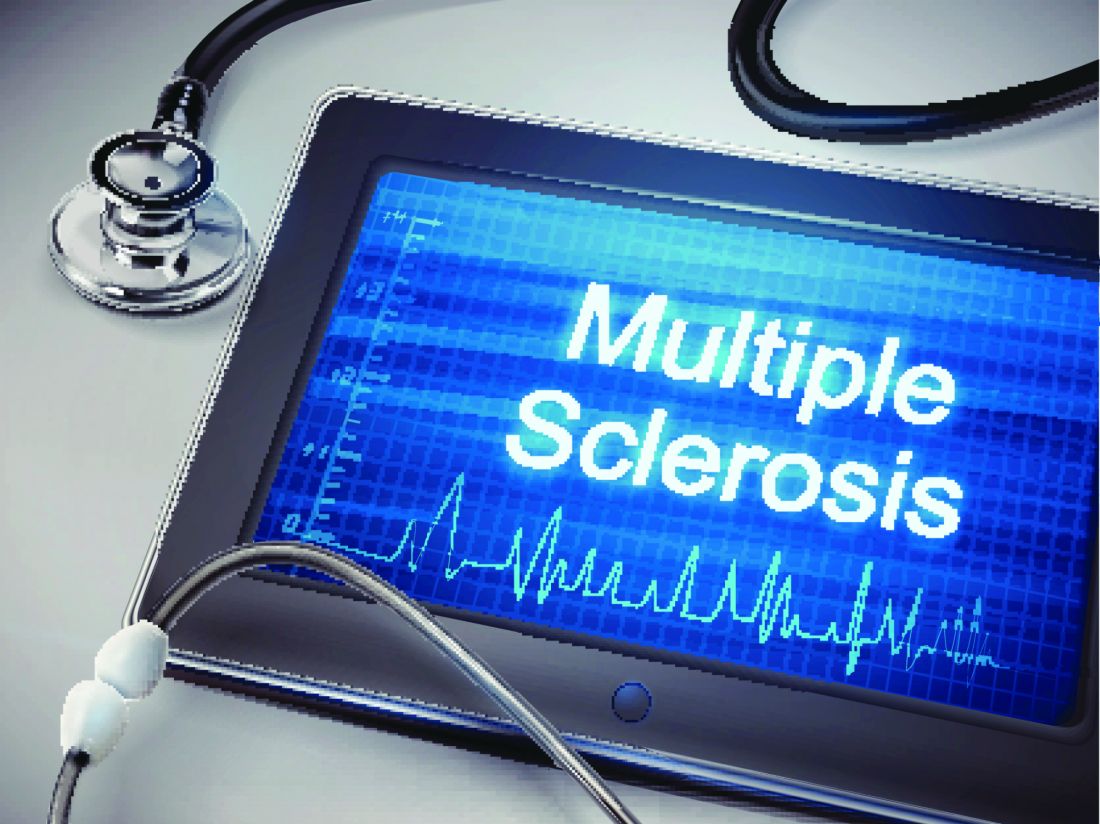User login
Assessing fitness to drive a motor vehicle is an important part of clinical practice for multiple sclerosis, but MS and cognitive impairment alone don’t indicate that a patient will fail a formal road test. However, the results from a recent study indicate that one cognitive test may be able to predict the patients who would fail road tests though only with a high false-positive rate.
During 2015-2016, Sarah A. Morrow, MD, of Western University, London, Ont., and her coauthors recruited licensed drivers aged 18-59 who were diagnosed with MS. They had low physical disability (Expanded Disability Status Scale score of less than 4) but cognitive impairment in both processing speed and either memory or executive function. This set of requirements, along with the need for signed informed consent, yielded a smaller sample size (36) than the researchers’ goal, a possible weakness of the study, the investigators said (Mult Scler. 2017 Aug 7. doi: 10.1177/1352458517723991).
The researchers noted that, if a patient does not show impairment on the BVMTR-IR, then they will definitely pass the road test, but they also noted that showing impairment is much less likely to predict a failed test. Instead, impairment both on this test and on the Symbol Digit Modalities Test, which measures processing speed, should indicate the need for a formal driving assessment.
“This study further contributes to the clinician’s ability to identify [persons with MS] in whom fitness-to-drive should be addressed,” the investigators wrote.
Assessing fitness to drive a motor vehicle is an important part of clinical practice for multiple sclerosis, but MS and cognitive impairment alone don’t indicate that a patient will fail a formal road test. However, the results from a recent study indicate that one cognitive test may be able to predict the patients who would fail road tests though only with a high false-positive rate.
During 2015-2016, Sarah A. Morrow, MD, of Western University, London, Ont., and her coauthors recruited licensed drivers aged 18-59 who were diagnosed with MS. They had low physical disability (Expanded Disability Status Scale score of less than 4) but cognitive impairment in both processing speed and either memory or executive function. This set of requirements, along with the need for signed informed consent, yielded a smaller sample size (36) than the researchers’ goal, a possible weakness of the study, the investigators said (Mult Scler. 2017 Aug 7. doi: 10.1177/1352458517723991).
The researchers noted that, if a patient does not show impairment on the BVMTR-IR, then they will definitely pass the road test, but they also noted that showing impairment is much less likely to predict a failed test. Instead, impairment both on this test and on the Symbol Digit Modalities Test, which measures processing speed, should indicate the need for a formal driving assessment.
“This study further contributes to the clinician’s ability to identify [persons with MS] in whom fitness-to-drive should be addressed,” the investigators wrote.
Assessing fitness to drive a motor vehicle is an important part of clinical practice for multiple sclerosis, but MS and cognitive impairment alone don’t indicate that a patient will fail a formal road test. However, the results from a recent study indicate that one cognitive test may be able to predict the patients who would fail road tests though only with a high false-positive rate.
During 2015-2016, Sarah A. Morrow, MD, of Western University, London, Ont., and her coauthors recruited licensed drivers aged 18-59 who were diagnosed with MS. They had low physical disability (Expanded Disability Status Scale score of less than 4) but cognitive impairment in both processing speed and either memory or executive function. This set of requirements, along with the need for signed informed consent, yielded a smaller sample size (36) than the researchers’ goal, a possible weakness of the study, the investigators said (Mult Scler. 2017 Aug 7. doi: 10.1177/1352458517723991).
The researchers noted that, if a patient does not show impairment on the BVMTR-IR, then they will definitely pass the road test, but they also noted that showing impairment is much less likely to predict a failed test. Instead, impairment both on this test and on the Symbol Digit Modalities Test, which measures processing speed, should indicate the need for a formal driving assessment.
“This study further contributes to the clinician’s ability to identify [persons with MS] in whom fitness-to-drive should be addressed,” the investigators wrote.
FROM MULTIPLE SCLEROSIS JOURNAL

